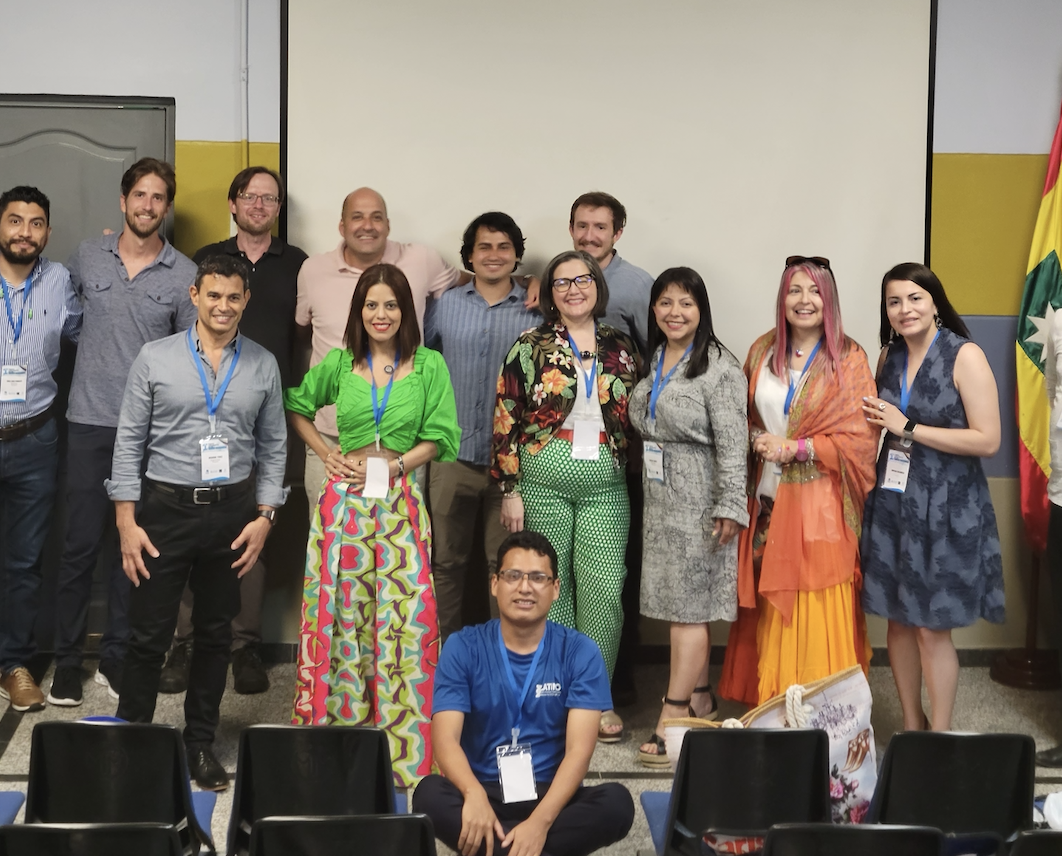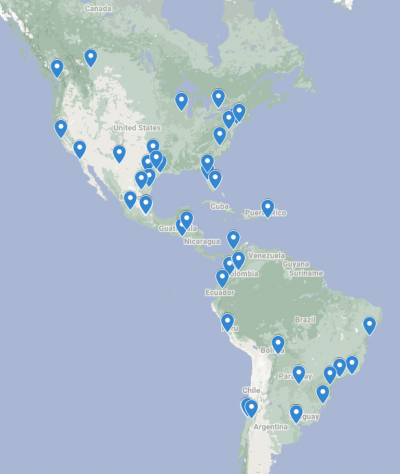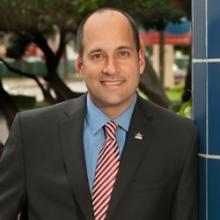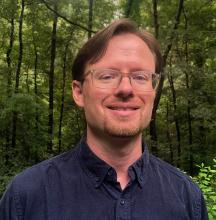Latin American Trans-ancestry Initiative in OCD Genomics Project: Information and Getting Involved
Latin American Trans-ancestry Initiative in OCD Genomics Project: Information and Getting Involved

Obsessive-compulsive disorder (OCD) is a common condition affecting approximately 1-2% of the world population. Characterized by distressing intrusive thoughts, images or impulses and unwanted repetitive behaviors, OCD can have wide-reaching implications for both individuals with OCD and their families. While the impacts of this condition are well studied, what causes OCD remains less clear.
Current evidence suggests that genetics play a role in the development of OCD. However, the exact genes and biological mechanisms contributing to OCD remain elusive. Studying this is important because identifying factors contributing to OCD might contribute to better and more personalized treatments. While genomic studies of OCD have made exciting discoveries and are beginning to reveal information about risk, more than 95% of the people involved in these studies are of European ancestry. This is a significant problem unfortunately. If not addressed, this Eurocentric bias would likely result in OCD genetic findings being more accurate for individuals of European ancestry than other ancestries like those who are Latin American, Asian, or Black. This would further contributes to already existing health disparities, making potential future applications of genomics and precision medicine less reliable for individuals of non-European ancestry.
Recently, an interdisciplinary team led by Drs. James Crowley (University of North Carolina at Chapel Hill) and Eric Storch (Baylor College of Medicine) was funded by the National Institute of Mental Health to carry out an ambitious project to address this lack of diversity. This group spent much of the past two years assembling a network of over 50 sites in Latin America, the US and Canada that treat a large number of ancestrally diverse OCD patients (see Figure 1).
We have come together with experts in OCD genetics and the genetics of diverse admixed populations for this NIH-funded study called the Latin American Trans-ancestry Initiative for OCD genomics (LATINO, www.latinostudy.org). The primary goal of the LATINO study is to collect DNA through saliva as well as clinical information from at least 5,000 Latinx adults or children with OCD. We will compare these results to people without OCD who are being collected by other Latinx psychiatric genetics projects. Then, all of these people (over 10,000 Latinx individuals) will be analyzed, allowing us to perform a novel trans-ancestry genetic analysis in collaboration with other groups working on the genetics of OCD. We will also use these data to inform ways of determining risk of having OCD using a method called polygenic risk score analysis. Overall, this study will highlight the importance of including all major ancestral groups in genomic studies, to represent all people who may be affected with OCD, to understand how OCD may be caused across individuals of all races and ethnicities, and to reduce health disparities in potential future applications of genomics in precision medicine.
 While studying genetics is very exciting, LATINO is also much more than a genetic study. OCD is under-recognized, under-diagnosed, under-treated and under-studied in Latinx individuals. Many individuals go too long (if ever!) before receiving help. Therefore, in addition to decreasing the Eurocentric bias in OCD genetic samples, LATINO is working with other stakeholders and patient-centered organizations to increase awareness of OCD in Latinx individuals and improve their access to evidence-based treatments such as cognitive-behavioral therapy. First, LATINO is playing a central role in executing social media-based awareness campaigns and providing hands-on training for psychologists, therapists, and psychiatrists interested in treating OCD. Partnerships with social media experts like TalkTOC and ALTOC and others are helping to spread the word. Second, in partnership with ALTOC, we held the first Latin American Congress for OCD in Cartagena, Colombia in 2022. The next meeting is scheduled for June 16-17, 2023 in Lima, Peru. Third, LATINO is also facilitating OCD research in Latin America by translating key instruments into Spanish and Portuguese, validating them in Latinx individuals and providing a genomics training program. Fourth, clinical training opportunities are being held including consultation groups on psychotherapy, and training in treatment and genetics, and assessment. Finally, LATINO is facilitating Latin American OCD researchers to identify funding opportunities and establish mutually beneficial collaborations and mentoring opportunities, with the goal of decreasing disparities on multiple levels.
While studying genetics is very exciting, LATINO is also much more than a genetic study. OCD is under-recognized, under-diagnosed, under-treated and under-studied in Latinx individuals. Many individuals go too long (if ever!) before receiving help. Therefore, in addition to decreasing the Eurocentric bias in OCD genetic samples, LATINO is working with other stakeholders and patient-centered organizations to increase awareness of OCD in Latinx individuals and improve their access to evidence-based treatments such as cognitive-behavioral therapy. First, LATINO is playing a central role in executing social media-based awareness campaigns and providing hands-on training for psychologists, therapists, and psychiatrists interested in treating OCD. Partnerships with social media experts like TalkTOC and ALTOC and others are helping to spread the word. Second, in partnership with ALTOC, we held the first Latin American Congress for OCD in Cartagena, Colombia in 2022. The next meeting is scheduled for June 16-17, 2023 in Lima, Peru. Third, LATINO is also facilitating OCD research in Latin America by translating key instruments into Spanish and Portuguese, validating them in Latinx individuals and providing a genomics training program. Fourth, clinical training opportunities are being held including consultation groups on psychotherapy, and training in treatment and genetics, and assessment. Finally, LATINO is facilitating Latin American OCD researchers to identify funding opportunities and establish mutually beneficial collaborations and mentoring opportunities, with the goal of decreasing disparities on multiple levels.
Studying complex genetic traits such as that in OCD requires a large and diverse sample of participants. As noted, we have put together a multidisciplinary team across North, South and Central America to fulfill our goal. As shown in the map, our team includes over 50 specialty OCD clinics and expert clinical settings in Latin America including teams from Argentina, Bolivia, Brazil, Chile, Colombia, Ecuador, El Salvador, Guatemala, Honduras, Mexico, Paraguay, and Peru, as well as multiple cities/regions in the U.S. (e.g., Rio Grande Valley of Texas, San Diego, and San Juan, Puerto Rico) and Canada.
Given that LATINO aims to collect saliva samples from at least 5,000 Latinos with OCD and analyze their DNA, accomplishing our recruitment goals will take a broad, multi-pronged effort, as well as a grassroots effort by people directly affected by this problem. Thus, it is important to spread the word, and to encourage individuals with OCD (or had OCD in the past) who are Latinx to become involved. One way of becoming involved is to actually participate. The project involves a videoconference interview (about 2.5 hours) where you are asked about OCD and related concerns, and afterwards you provide a saliva sample that is mailed to you. Another is just to spread the word in your community (see box insert).
To participate, you must:
- be between the ages of 7-89
- have current or past symptoms of OCD (no formal diagnosis is needed)
- have Latin American or Hispanic ancestry (yourself, a parent, or grandparent must have been born in Latin America or the Caribbean, or your family descends from Latin America).
 If you believe you are eligible and want to join the study, you can take a short survey by visiting https://redcap.link/latino or by scanning the QR code. If you live in one of the participating countries outside the US and would like to participate, please email us at latinostudy@bcm.edu.
If you believe you are eligible and want to join the study, you can take a short survey by visiting https://redcap.link/latino or by scanning the QR code. If you live in one of the participating countries outside the US and would like to participate, please email us at latinostudy@bcm.edu.
Please feel free to reach out to the project team at latinostudy@bcm.edu to learn more about our research and to find out how you could become involved. We also have created an interactive website with additional information in English, Spanish, and Portuguese, available at www.latinostudy.org.
For more information, please contact Dr. Eric Storch at eric.storch@bcm.edu or latinostudy@bcm.edu. Please also see www.latinostudy.org.
Research Team: Eric A. Storch, Renee Frederick, Jacey Anderberg, Carol Cappi, Paola Giusti, Karen Martinez, Pablo Moya, Humberto Nicolini, Marcos Ochoa, Michelle Pato, the LATINO Study Team, and James J. Crowley.













